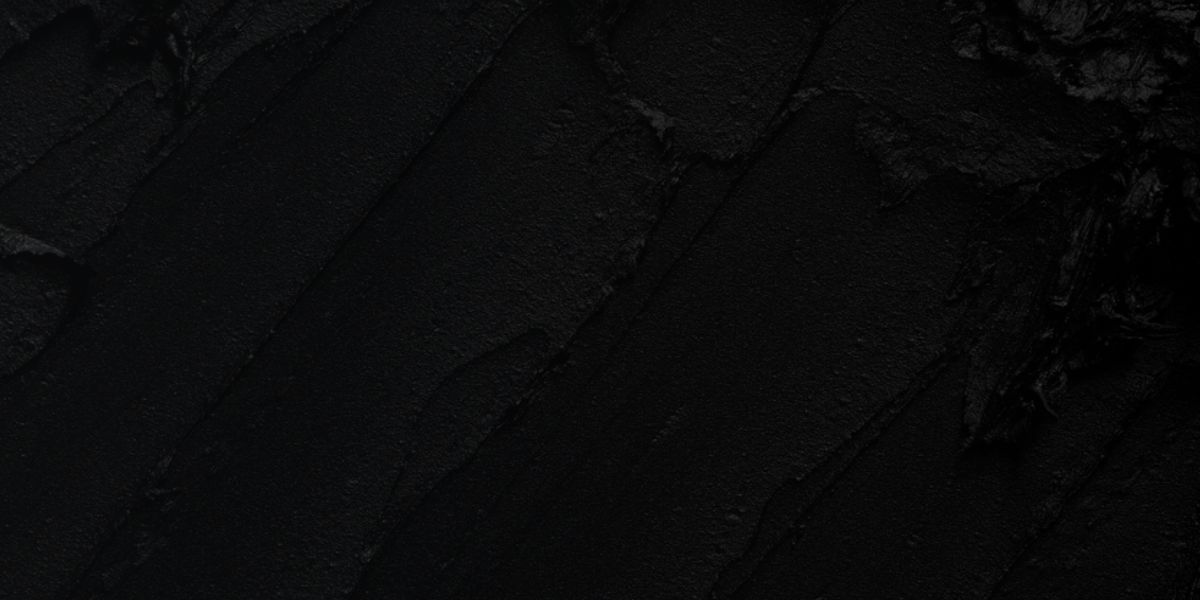If you’re looking to start or grow a business as a skincare consultant, you’re in luck! There are a number of great tools out there that can help you do just that. In this article, we’ll discuss 28 of the best tools to grow your skincare business and find success in the beauty industry.
Specifically, we’ll look at software tools, business tools, and on-the-job supplies that’ll help you reach your goals. Whether you’re just starting out or you’ve been in the game for a while, these essentials will help you take your career to the next level!
Were you born to be a skincare expert? Then you NEED to check out our Ultimate Guide to becoming a skincare consultant! It’ll walk you through the entire process from start to finish – even if you have no experience!
Frequently Asked Questions
Before we dive into the meat and potatoes of this article, let’s first answer some of the most commonly asked questions about the skincare industry…
Is Skincare Business Profitable?
This is a great question and the answer may surprise you! The skincare industry is actually very profitable. In fact, according to GlobeNewsire, it’s expected to hit a revenue of $145.82 billion (USD) by 2028. For reference, the market was valued at $98.83 billion (USD) in 2020.
What does this mean for you?
It means that NOW is the perfect time to get into the business!

What Is a Skincare Consultant?
A skincare consultant is someone who provides expert advice on all things related to skincare. This can include product recommendations, skin type analysis, and tips on how to properly take care of your skin.
What Are a Skincare Consultant’s Job Duties?
The duties of a skincare consultant vary depending on the needs of the client. That said, regular parts of your day-to-day work might include:
- Conducting an initial client consultation
- Analyzing the client’s skin type
- Recommending products
- Demonstrating how to use products
- Formulating a customized skincare regimen for each individual client
- Providing tips and advice on how to properly care for the skin
- Providing tips and advice on how to combine skincare products with makeup products
What Can’t a Skincare Consultant Do?
Unlike estheticians or cosmetologists, skincare consultants are not qualified to perform any surgical cosmetic procedures. This includes services such as chemical peels or waxing.
Similarly, you won’t be qualified to prescribe medical treatments. If a client needs this type of assistance, you can use your expertise to advise them to seek out the help of a licensed dermatologist.
What Is The Average Salary for a Skincare Consultant?
Unfortunately, there’s no one-size-fits all answer to this question. This is because the amount of money you make will ultimately depend on a number of factors, such as your experience, qualifications, location, whether you run your own business or not, etc.
However, we can give you an idea of the potential earnings you can make! Here are some up-to-date salary ranges for skincare consultants in the following countries:
- United States: Between approx. $27,500 USD and $61,500 USD per year (Source: ZipRecruiter)
- Canada: Between approx. $22,000 CAD and $49,000 CAD per year (Source: Glassdoor)
- United Kingdom: Between approx. £15,000 GBP and £33,000 GBP per year (Source: Glassdoor)
- Australia: Between approx. $42,000 AUD to $80,000 AUD per year (Source: Payscale)
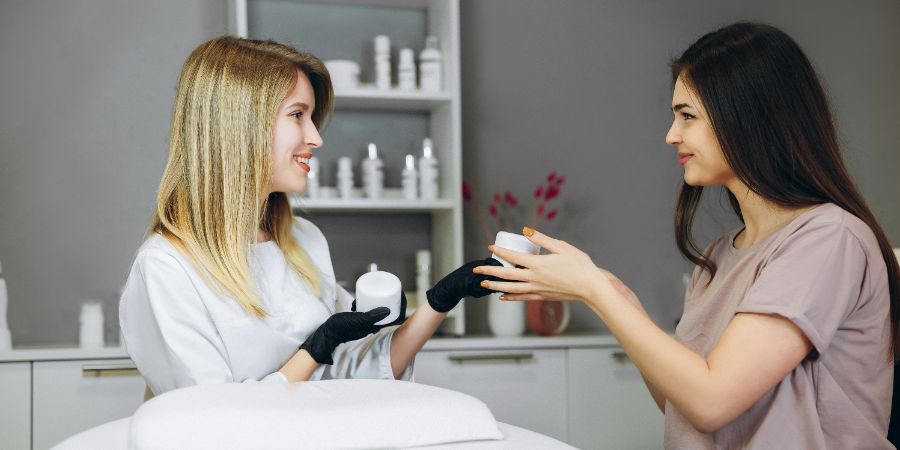
Ways To Increase Your Salary
There are also a few things you can do to try and increase your income as a skincare consultant. Here are a few examples:
1. Get Certified
Many employers and/or clients prefer to hire skincare consultants who have completed some sort of reputable certification training. So, this is definitely something that will help you earn a higher salary!
2. Gain Experience
The more experience you have, the more likely you are to be offered a higher salary (or be able to charge higher rates). If you’re just starting out in the skincare consulting industry, consider taking on some internships or entry-level roles to gain some valuable experience first.
And if you run your own business? Take the time at the beginning of your career to actively seek out new clients and projects. Gaining real-world experience by working on people you know – such as friends and/or family – is a great example of this!
3. Relocate
Typically, salaries tend to be higher in developed countries such as the United States, United Kingdom, Canada, Australia, and New Zealand. So, if you’re willing to relocate, this could be a good way to earn a higher salary and open you up to a larger clientele.
4. Offer Virtual Skincare Services
If you don’t want to relocate (or simply don’t have the means to), that’s totally fine – you have other options!
Since the start of the global pandemic, many businesses have had to pivot and offer their services online. And as more and more people are shopping for beauty products and services online, this is definitely a service YOU could consider offering as well. Not only will it help you reach a wider audience; it can also be a great way to earn a higher income.
5. Offer Other Relevant Services
Another way to increase your earnings as a skincare consultant is to offer additional services that are related to the beauty industry. For instance, you could also offer:
- Makeup artistry (e.g., bridal, everyday wear, Special FX makeup, makeup for film and television, virtual makeup classes, etc.)
- Hair styling
- Fashion styling
- And more!
The more services clients can get from under one roof, the more likely they’ll be to book these additional services with you – rather than seek out someone else. By expanding the number of services your business offers, you’ll be able to reach a wider range of clients AND charge higher rates for all of your services as a whole.
6. Start Your Own Skincare Consulting Business
If you’re self-employed, then the sky’s the limit in terms of your earnings potential! Of course, this does mean you’ll have to work harder and put in more hours in order to be successful. But if you’re motivated by money, want to be your own boss, and desire creative freedom, then the effort will definitely be worth it!
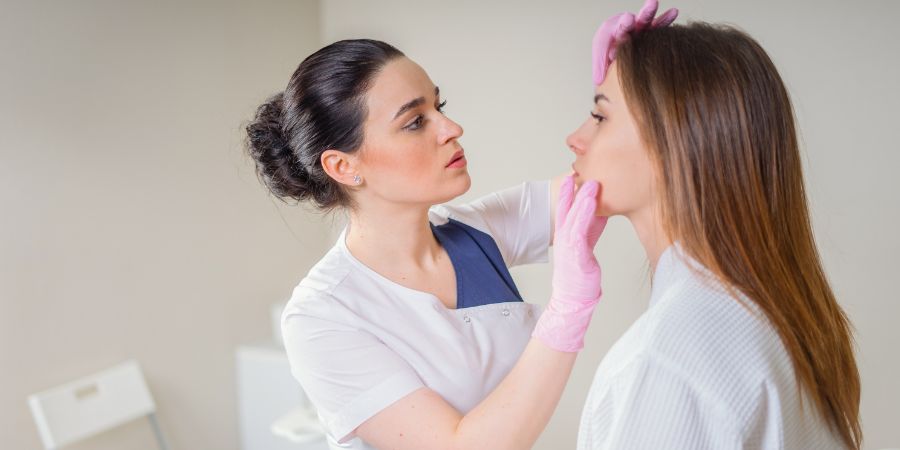
What Are The Benefits of Being a Skincare Consultant?
There are many benefits to being a skincare consultant! Here are just a few examples:
- You have the ability to help people feel better about themselves
- You’re given the opportunity to work with a wide range of clients
- You have the chance to be your own boss
- There’s massive potential to earn a high income
Basically, so long as you’re passionate about skincare and enjoy helping others, a career as a skincare consultant would be a great fit for you!
Do You Need a Certification To Be a Skincare Consultant?
Okay, so the thing is, you don’t technically “need” a professional certification to work as a skincare consultant. However, it’ll be extremely hard to set yourself up for success without one! After all, employers and clients alike won’t be inclined to hire you if you can’t prove that you know what you’re doing – or that you’ve taken the time to earn your stripes!
For this reason, many skincare consultants choose to pursue professional certification in order to improve their skills and increase their knowledge about the industry as a whole. There are a variety of different professional certifications available for skincare consultants – such as the Skincare Course offered by QC Makeup Academy.
About QC Makeup Academy
QC Makeup Academy is a faculty of QC Career School, a pioneer of distance learning since 1984. All of our courses are entirely self-paced and done online. Meaning, you have the flexibility and freedom to earn your globally-recognized International Skincare Consulting Professional (ISCP) certification + designation whenever (and from wherever) you want!
Moreover, QC Makeup Academy holds an A+ ranking with the Better Business Bureau, and has over 200 5-star reviews on Facebook alone. Countless graduates of QC Makeup Academy have since gone on to launch lucrative careers in:
- Bridal makeup/special events makeup
- SFX makeup
- Makeup for film, TV, and theater
- Celebrity makeup
- Skincare consulting
- Hair styling
- Fashion styling
- Airbrush makeup
- Global beauty
What’s more, countless alumni have even gone on to become Ambassadors for major beauty brands – and even launch their own cosmetic and skincare lines, too!
If you’re interested in learning more about QC Makeup Academy, or connecting with us directly, we welcome you to check us out on the following social media platforms:
If you have any questions or wish to speak with a member of QC’s amazing Support Staff, you can also reach out via email, phone, or live chat – depending on your personal preference!

QC Makeup Academy’s Skincare Course
In this 5-unit online program, you’ll learn everything needed to launch your career as a professionally-certified skincare consultant. Here’s a sneak peek of what will be covered in each unit…
Unit A
- The basics of skincare
- The role of a professional skincare consultant
- Skin anatomy
- Different skin types
Unit B
- Understanding labels on skincare products
- Morning vs. nighttime skincare routines
- How to recommend the right cleanser and moisturizer
- Recommending different skincare tools
- Pairing makeup recommendations with skincare recommendations
Unit C
- How to work with skin conditions
- Accessing a client’s skin and accurately addressing any of its concerns
- Morning and nighttime skincare regimens for acne-prone skin
Unit D
- What causes aging skin
- Anti-aging ingredients and skincare products
- Anti-aging skincare regimens for mature clients
- How to properly evaluate anti-aging creams
Unit E
- The basics of natural skincare
- How to select the right natural skincare products
- DIY recipes for skincare
- How to conduct a skincare consultation with a client
- Problem-solving during the consultation process
Oh, and the best part? Because you get to decide how often you work on your studies, you can graduate and earn your skincare consultant certification in as little as 2-6 months (maybe even sooner)!
View the full details for QC’s Skincare Course here and get started today!
Essential Tools To Start a Skincare Business
Okay, now it’s time to look at the various tools you’ll need to grow your skincare business. Let’s start by first breaking down the must-have tools you’ll need to start this exciting venture in the first place!
1. A Skincare Business Plan
The first thing you’re going to need is a business plan. This document will outline your overall goals and strategies, and how you plan on achieving them. Your business plan will be essential to the success of your skincare business!
Moreover, if you want to try and get financial assistance from a bank, they’re going to require this business plan from you.
Never written a business plan before?
No sweat! Just make sure that it contains the following key info:
- An executive summary of your skincare business
- A general description of company
- Market analysis research
- A sales/marketing plan
- Your operational plan
- A brief overview of your management team
- Your financial plan and goals
If you need a little more help getting the ball rolling, there are all sorts of free templates and guidebooks available online!

2. Insurance for Your Skincare Business
The next must-have is, of course, business insurance! Business insurance will protect you in the event of any accidents, injuries, or damages that occur while working with clients (or even afterwards).
There are a variety of different policies that you can choose from, and you may find yourself a bit overwhelmed at first by all of your options. Just take a breath, go through each type of insurance individually, and remember that your business won’t need all of them. By doing a little research, you’ll be able to narrow down the list and find the one (or two) that’s right for your company.
General liability insurance, for instance, will cover any third-party injuries that occur in your salon, on your property, etc. Another example would be insurance that can protect you in the event that a client tries out a product you’ve recommended, only for it to have unwanted reactions to their skin. In this kind of case, the best type of insurance to cover you would be professional liability insurance.
Other types of business insurance that you may want to consider include:
- Product liability insurance
- Property damage insurance
- Business interruption insurance
- Workers’ compensation insurance
- Employment practices liability insurance
Tips For Finding The Right Coverage For YOUR Skincare Business
The best way to determine which type (or types) of business insurance you need is by doing a risk assessment of your company. This will help identify any potential areas where you may be vulnerable, and therefore in need of protection.
Once you have a good understanding of the risks that come with your skincare business, you can start shopping around for the right insurance policy!
There are a few things that you’ll want to keep in mind while you’re searching for the perfect policy, such as:
- The size of your business
- Your company’s location
- How many employees you have
- The type of products and services you offer
- Your target market
- Your business’s growth potential
By taking all of these factors into consideration, you’ll be able to find an insurance policy that’s both comprehensive and affordable.
3. A Registered Business Name
Before you can start legally operating your skincare business, you’ll first need to register it with the government. One major perk to registering your business name is that no one else will be able to use it. Instead, it’ll belong to you and you alone!
The process of registering a business name involves first coming up with a name for your company (that isn’t already in use, obviously) and then filing the appropriate paperwork. This process is actually quite simple and straightforward, so don’t feel overwhelmed! All you need to do is check with your local government office for the specific requirements where you live.
Need help coming up with the right name for your skincare business? Here are the Top 5 rules to picking the PERFECT name!
4. A Laptop and/or Smart Phone
Literally every business owner needs a laptop and/or smart phone these days. After all, these devices will be essential for keeping track of your bookings/appointments, communicating with clients, managing your finances, etc. Plus, you’ll need to be reachable, as you never know when a prospective client will be trying to contact you!
The good news is that these days, there are all sorts of great laptops and smartphones on the market that won’t break the bank. If you don’t have one already, we recommend doing some comparison shopping. This way, you can find the perfect device for your needs!
5. A Business Website
In today’s day and age, it’s absolutely essential to have a strong online presence for your skincare business – and one of the best ways to do this is by creating an official business website!
The thing is, your website doesn’t even need to be fancy or complicated. So long as it includes all the basic information about your company – such as your contact info, services offered, prices, online booking, etc. – you’ll be good to go.
Never created a website before? There are countless resources and guides available online, such as this guide by Business News Daily. Another option, if you have the budget for it, is to hire a web designer who can create the site for you.
Either way, just make sure to set aside the appropriate amount of time and money for this important task!
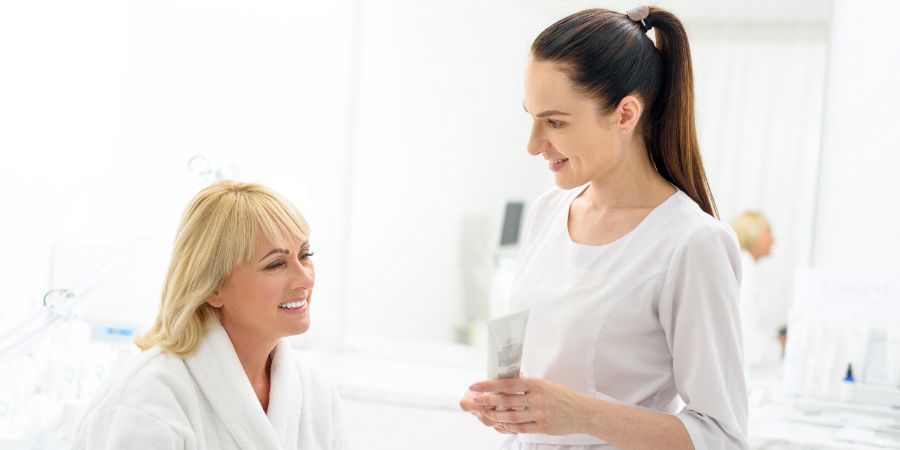
6. Your Professional Skincare Portfolio
When you’re first starting out in the skincare industry, it’s important to build up a strong portfolio of your work. Your portfolio will show clients what you’re capable of – as well as help them decide if you’re the right consultant for their needs.
Your portfolio can include things like before vs. after photos, client testimonials, behind-the-scenes videos, etc. And if you have any previous experience working as a skincare consultant, be sure to include that as well!
The thing is, building up a strong portfolio takes time and effort. But it will be worth it in the long run when you start booking clients left and right. Not to mention, it can be an ongoing effort. Your portfolio doesn’t have to be perfect right at the start of your career – you can continue to build upon and refine it, the longer you gain experience!
Did you know that QC Makeup Academy’s online Portfolio Development Workshop is ALL about helping you put together a solid portfolio to launch your career with? It’s true – and it’s one of the many reasons why this course is so popular!
7. Business Cards
Another important marketing tool when starting up your skincare business are business cards. These can be handed out to potential customers, left at local businesses, distributed at networking events, or simply given to anyone who expresses interest in your beauty services.
Your business card should include your:
- Name
- Professional title
- Skincare business’s name
- Link to your website
- Social media handle
- Contact information
Additionally, you can also include a brief tagline or slogan on your card – something that sums up what you do and why you’re the best at it!
There are all sorts of online printing companies that offer affordable business card printing services. The main thing we recommend is making sure that you order enough cards for all your marketing needs!
8. Social Media Accounts
Lastly, it’s important to have a strong social media presence for your skincare business. Through the power of social media, you’ll be able to reach a wider audience and connect with potential clients from all over the world!
Some of the most popular social media platforms for businesses these days include Facebook, Twitter, TikTok, LinkedIn, YouTube, and Instagram. That said, of course, there are plenty of other options out there as well. Why not look around and see which one(s) would make the most sense for your business!
Once you’ve set up your profiles, be sure to regularly populate them with high-quality content. Original photos/videos, blog posts, skincare advice/tips, and client testimonials are all excellent examples. When you do this, you’ll be showing people how serious you are about your business. Not to mention, posting high-quality content on a consistent basis will help you attract more followers.
Software To Grow Your Skincare Business
Now let’s move on and talk about some software tools that can help you grow your company. Keep in mind that everything we’re about to list are just some of the options at your disposal. If you do a little online research, you’ll find even more potential software that could work for you.
1. Asana
Asana is a project management software that can help you keep track of all your skincare clients, appointments, and tasks – all in one place. This can be massively helpful when you’re trying to stay organized and on top of your business… Which, of course, is what every business owner is literally always doing!
Another perk to Asana is that they offer a free version, which should be more than enough for most small businesses! With that in mind, if you’re looking for an alternative to Asana, we also recommend Trello or Basecamp.
2. Mailchimp
Mailchimp is a very handy tool that’ll help you create and send newsletters, email campaigns, and other marketing materials. This is super important, as you’ll then be able to stay in touch with your clients, while also promote your business at the same time!
Mailchimp also offers a free plan for small businesses, which we recommend taking advantage of. Alternatives to Mailchimp include – but aren’t limited to – Sendinblue or Constant Contact.

3. QuickBooks
If you’re running your own business, you’re absolutely going to need accounting software – especially if you don’t have the budget to hire a personal accountant to do this type of work for you. And when it comes to accounting software, QuickBooks is considered the best of the best!
With QuickBooks, you can effortlessly manage your finances, invoices, and expenses. Furthermore, they offer a free trial, thereby giving you the flexibility to try their services before committing to a paid plan.
If you’re not a fan of QuickBooks and are looking for an alternate option for accounting software, then we would also recommend FreshBooks.
4. Zoom Events
These days, virtual beauty services are all the rage! Zoom Events is a tool that can help you flawlessly manage and execute virtual client consultations, follow-up appointments, online lessons, group classes, etc. With Zoom Events, you can live stream, host webinars, have chat rooms, and allow for breakout sessions. Another bonus is that their platform is super user-friendly and easy to navigate.
That said, probably our favorite thing about Zoom Events is that they offer a free plan for small businesses. That said, of course, if you don’t want to use Zoom, software like Webex or Google Meet are also a great alternative, too.
5. Wix
Wix is considered to be BEST all-around website builder… Just take it from Superb Website Builders! This is because Wix’s platform is super user-friendly, offers tons of free website templates and designs to choose from, and has powerful (yet easy-to-use) features.
I mean, what’s not to love?
Of course, Wix isn’t the only website builder available to you. If you’re not 100% sold on Wix, we also recommend giving Weebly, WordPress, or Squarespace a try.
Booker by Mindbody is considered one of THE best appointment booking software solutions for/in salons. It can be used to manage everything from client bookings and payments to marketing and staff management. Plus, this tool is great for small businesses that offer beauty services, as it can help streamline and optimize your day-to-day operations.
One thing to note about Booker, however, is that it’s a little pricey. It’s cheapest tier, for reference, is $125.00 per month. But if you’re not interested in any of the fancy bells and whistles, and just need a cohesive place to manage all of your appointments and a simple payment method, then this may be worth the cost for you.
7. Timely
Timely is another highly recommended scheduling software that comes at a bit more of an affordable price. In fact, their cheapest tier starts at only $15.00 per month! With Timely, you can manage your staff’s schedules, track time-off requests, and set goals and limits.
Overall, we think Timely is a great scheduling tool for small businesses – especially if you’re on a tighter budget.
9. Think Dirty
No, this isn’t an NSFW app, don’t worry… But it is an app you should have at your disposal!
The Talk Dirty app was first launched by Lily Tse, as Lily wanted to avoid toxic skincare ingredients due to the existing history of cancer already running in her family. With this free app, you can simply scan the barcode of any product and it’ll give you a “Dirty Meter” reading, which ranges from “Clean” to “Very Dirty.”
Furthermore, Talk Dirty will also provide you with a list of ingredients used in the product, as well as any health concerns associated with them.
Although your skincare certification training will make you an expert when it comes to good (and bad) product ingredients, this handy app can still prove useful in the event that you’re ever unsure. Plus, you can recommend it to your clients so they can double-check skincare ingredients when they’re not with you!
Lastly, you’re going to want some sort of software in place that’ll help you manage your contacts, clients, and client profiles. And while there are a number of great CRM software options out there, we think Hubspot’s is one of the best – especially because it’s free to use!
With Hubspot’s CRM, you can keep track of your client interactions (both online and offline), create detailed contact profiles (which can help you keep track of each person’s skincare concerns, progress, etc.), and set reminders for follow-ups. Plus, their CRM is also great for team collaboration, as it has features that’ll allow you to assign tasks to specific team members.
Overall, we think Hubspot’s CRM is a great tool for small businesses – and it doesn’t hurt that it’s free to use!
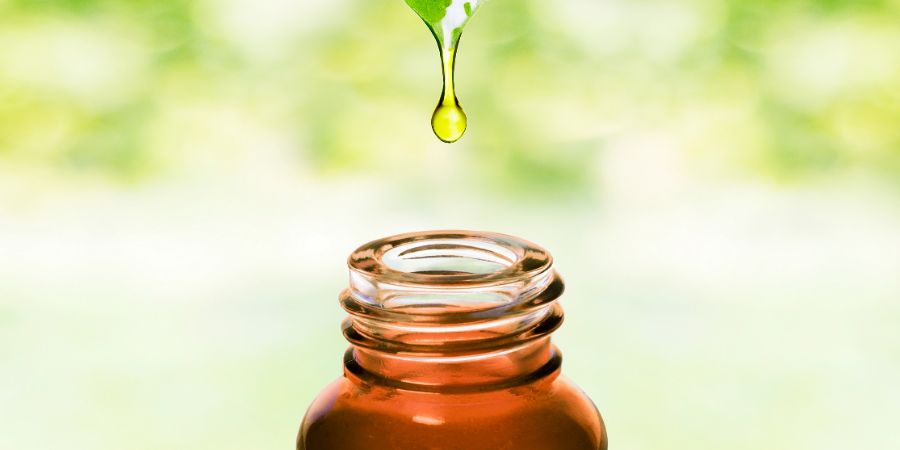
Must-Have Supplies and Tools To Grow Your Skincare Business
Lastly, let’s take look at the items you’ll need in order to actually do your job as a professional skincare consultant. After all, you can’t deliver your clients’ results without the proper supplies!
1. Proper Knowledge of Skin Types
As we briefly touched on earlier, one of the most important things you need in order to be a successful skincare consultant is an understanding of skin types.
Your certification training will teach you all about the different skin types – from oily and dry to combination and sensitive. But it’s important to note that every client’s skin type is unique. So, you’ll need to be able to properly assess each individual’s complexion before beginning any treatment or recommending any products.
Furthermore, you should also have a good understanding of common skincare concerns (i.e. acne, wrinkles, dark spots, etc.), as this will help you better treat your clients’ specific needs.
Once you have a solid understanding of both skin types and skincare concerns, you’ll be well on your way to becoming a successful skincare consultant!
2. A Client Consultation Form
The next item you’ll need in order to grow your skincare business and do your job properly is a client consultation form.
A client consultation form is a document that you’ll have your clients fill out before beginning any treatments or recommending any products. Usually, this form will be filled out by your client either before or during the first consultation.
In the form itself, you should be asking them questions about their skin type, concerns, and goals. This information is essential, as it’ll help you better understand each individual’s needs. Plus, it’s a great way to keep track of your clients’ progress over time!
If you’re not sure where to get started, there are plenty of free client assessment forms available online. Simply do a quick Google search and you should be able to find what you’re looking for!
3. A Client Assessment Form
Unlike a client consultation form, a client assessment form will get filled out along the way, as you and your client work together to reach the client’s skincare goals. Basically, the client assessment form is a way for you to track your clients’ progress over time, as well as their satisfaction with your services.
Some of the information you may track in this form will be similar to the information provided in the consultation form, such as:
- The client’s skin type
- Issues and concerns the client wishes to address/correct
- Their current skincare routine
- Current skincare products used
However, once you evaluate things and make recommendations, and your client starts implementing the regimen you’ve helped them create, your assessment form might also include information like:
- Results from using certain recommended products
- Before vs. after results throughout the process
- Updates to the skincare regimen, should new and/or alternate products need to be recommended
- Final results at the end of your time together
Again, there are plenty of free client assessment forms available online. But if you want to get really fancy, you can always create your own!
4. Skincare Product Samples
Next, you’ll also need to have skincare product samples on hand for your clients. This is especially important if you’re just starting out and don’t yet have a brick-and-mortar location where clients can purchase products.
Product samples are a great way to let your clients try out products before they commit to buying them. Plus, it’s a great marketing tool, as it allows you to introduce your clients to new products that they might not be familiar with otherwise.
If you don’t have any product samples on hand, don’t worry! Many skincare companies offer free (or low-cost) product samples that you can order for your business. All you have to do is reach out and ask!
5. Disposable Applicators
Another key thing you’ll need to have are disposable applicators. After all, some clients may wish to try a certain product during your consultation or appointment. Also, if your business also provides makeup services and you’re applying skincare products prior to the application, you’ll need to have disposable applicators on hand as well.
There are a few different types of disposable applicators that you can use for skincare, such as:
- Cotton balls
- Cotton swabs
- Sponges
- Brushes
- Pads
The type of applicator you use will depend on the product being applied, as well as personal preference. However, cotton balls and cotton swabs are usually a safe bet and can be used for a variety of products. You can find disposable applicators at most drugstores or online.
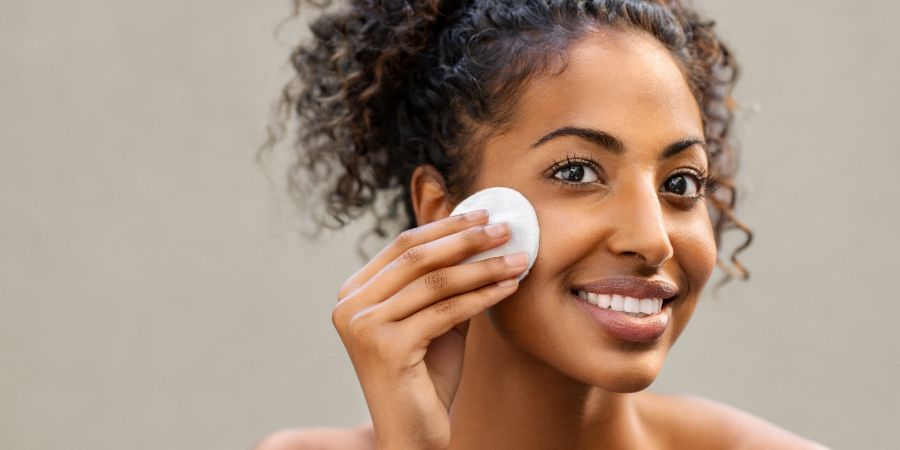
5. Sanitization Products
To do your job properly as a skincare consultant, you’ll also need to have some sanitization products on hand, such as alcohol wipes and/or sanitizing spray. This is important for both you and your client’s safety!
You’ll want to use sanitization products to clean your work station before and after each client, as well as in between any skincare and/or makeup applications on different clients. This will help to ensure that any bacteria or other contaminants are removed from the area, which will prevent the spread of infection.
You can find sanitization products at most drugstores or online.
6. A First Aid Kit
You should also have a first aid kit on hand, just in case of any accidents. This is especially important if you’ll be working with clients who have sensitive skin, as they may be more prone to developing rashes or other reactions.
A basic first aid kit should include:
- Band-aids
- Antibiotic ointment
- Cotton balls
- Gauze pads
- Adhesive tape
- Tweezers
- Scissors
A first aid kit is a must-have for any business, but it’s especially important if you work in the skincare industry! You can find a first aid kit at most drugstores or online.
7. Client Surveys
You should also consider using client surveys to get feedback from your clients. This is a great way to learn what’s working and what’s not, as well as get ideas for new products or skincare services that you can offer. Plus, when you receive positive feedback, you can showcase this client testimonial on your website and social media (just make sure to get the client’s permission first)!
Client surveys can be done in person, by mail, or online. There are a variety of different survey platforms that you can use, such as SurveyMonkey or Google Forms. You can also find plenty of free survey templates online.
8. A Positive Attitude
Having a good attitude is undoubtedly one of THE most important things to not only help you do your job properly – but build a long-term, successful career. After all, clients won’t want to recommend or re-book with a skincare consultant who makes a bad impression and is unpleasant to be around.
If you want to be successful in the skincare and beauty industry, you need to be able to maintain a good attitude, even when you’re feeling stresses. Remember: every day is a new opportunity to learn and grow – both as a skincare expert and as a person.
9. Solid Communication (and Listening) Skills
Another key thing you’re going to need as a skincare consultant are strong communication skills. This includes being able to listen to your clients’ needs and concerns, as well as explain things in a way that is easy for them to understand. Otherwise, they’re going to have a hard time following the skincare regimen you develop for them – and they won’t understand why they’ll benefit from it.
It’s also important that you’re able to communicate effectively with other members of your team (if you have one), as well as any vendors or suppliers that you work with. Having good communication skills will help to make sure that everyone is on the same page and working towards the same goal.
10. Patience
Last but not least, one of the most important things you need to grow your skincare business is patience! Building a successful business takes time, so don’t get discouraged if you don’t see results overnight. Just keep putting in the hard work and believe in yourself and your business – you’ll get there eventually!
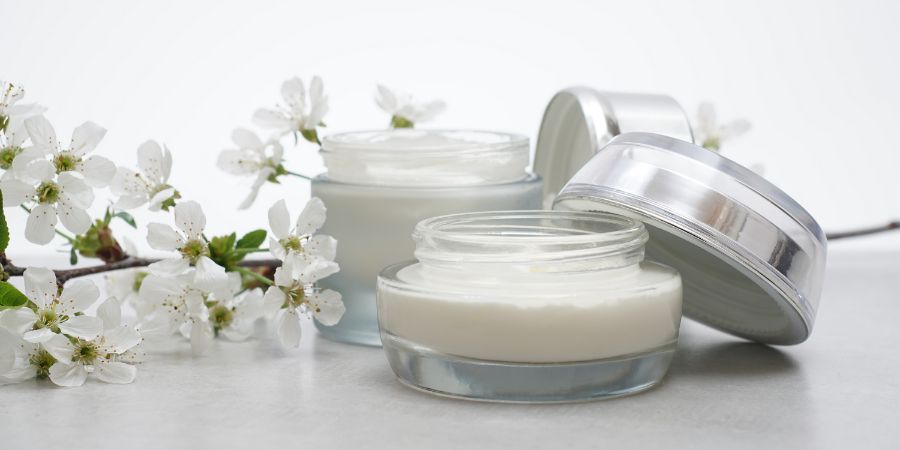
Conclusion
So, there you have it! These are just a handful of the things you’ll need to grow your skincare business. Just remember to be patient, stay positive, and always keep learning and growing as both a skincare expert and a business owner. Good luck!
Do you have any other tips for growing a skincare business? Share them in the comments below!
And don’t forget to check out our step-by-step guide for starting a skincare business. Thanks for reading! 😘
